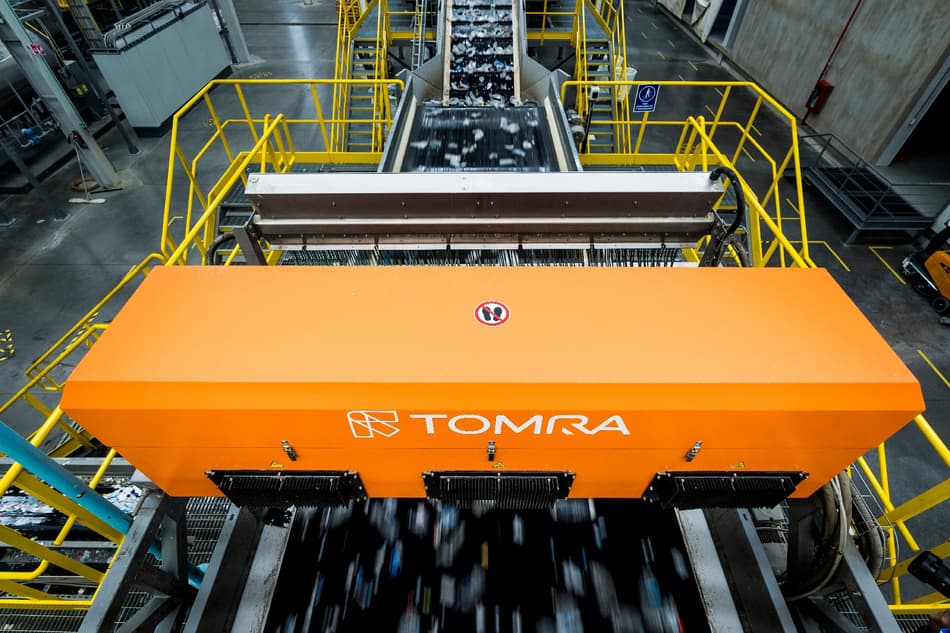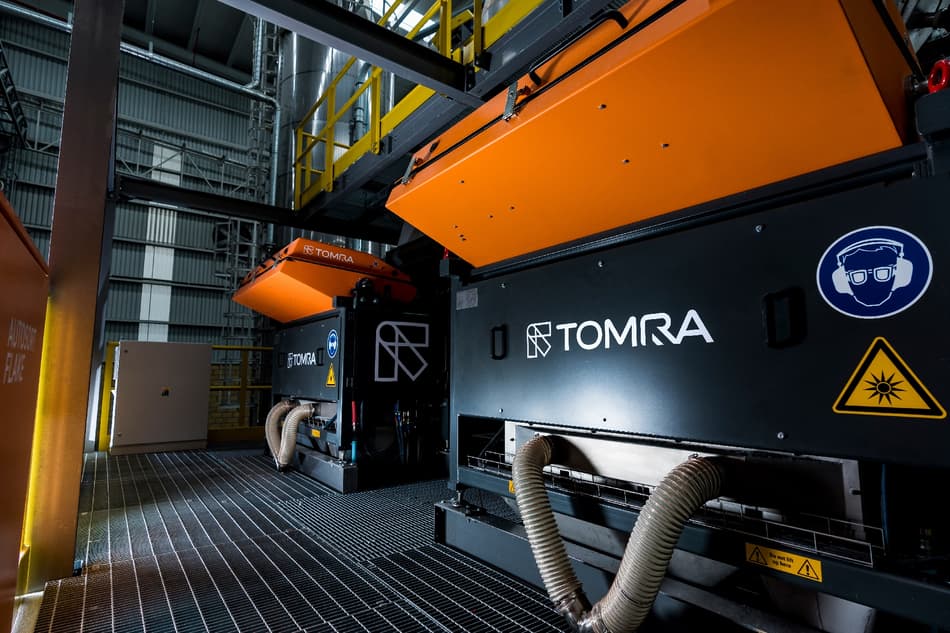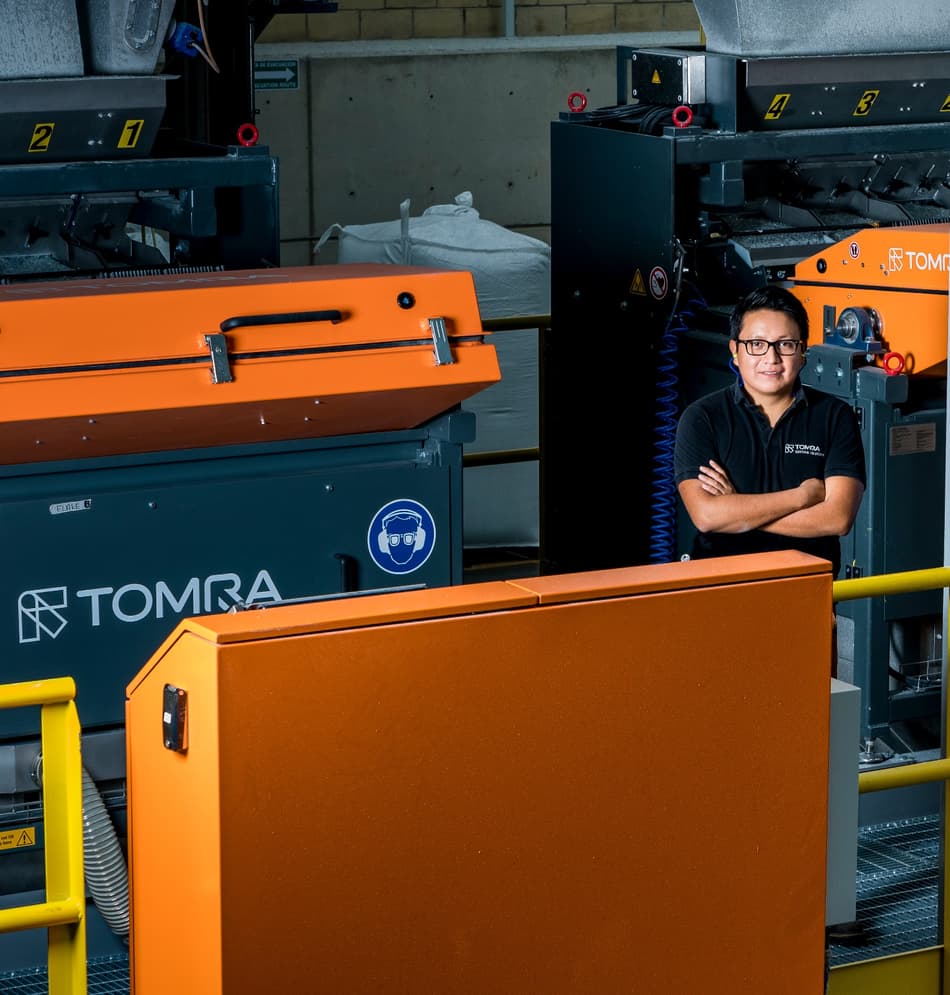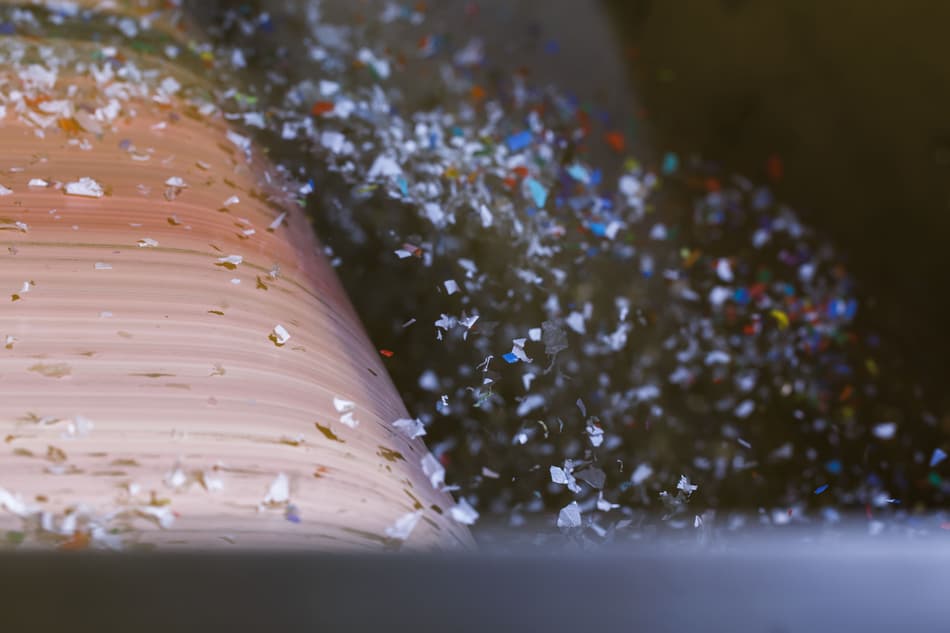Sorting technology to cope with the increase of the nation's waste

According to data from the Ministry of Public Education and the National Polytechnic Institute, during the pandemic, between 2.69 to 3.95 kilograms of plastic waste are generated per day for each patient with COVID-19. It is also estimated that the growth in the production of plastics for masks, medical articles, masks, and containers for disinfectant alcohol grew 12 to 15 times in recent months.
According to figures from the Senate of the Republic, Mexico is the 12th largest consumer of plastic in the world and the third-largest consumer of bottled water after China and the United States, according to statistics from Bottled Water. During the pandemic, there was a 300% increase in waste, representing 29,000 tons, according to data from the National Autonomous University of Mexico.
Official estimates state that by 2030, waste generation will increase to 65 million tons per year. According to the civil association AMOCALLI A.C., in the first four months of 2019, 546 tons of empty agrochemical containers had been sent to "final destination", of which 155 tons (45%) were for burning in cement kilns and 327 tons for traditional recycling.
The economic sector that generates the most plastic waste is the packaging sector. This is because once the product is extracted or consumed, packaging immediately becomes waste. These single-use plastics represent the largest plastic waste stream polluting our planet. The high and increasing levels of plastic litter and marine microplastics represent a serious environmental problem on a global scale, negatively affecting ecosystems as well as local societies and economies.
PET is a plastic that can be reused on several occasions if properly treated. Containers and packaging contain different types of plastics, materials and additives. Many of them are combined with paints in caps and labels, aluminum layers are added, as well as plastic coatings with a chemical substance called Bisphenol A (BPA) that prevents environmentally friendly recycling.
In this context, the role of the recycling industry has been fundamental. However, there is a real concern in the sector related to the high volumes of waste being produced on a daily basis. Waste pickers must adapt to the new paradigm of pandemic living and to meet this challenge, it will be necessary for the industry to adopt new recycling techniques and technology that are innovative and ensure the safety and health of citizens, while protecting the environment. This will lead to the competitiveness of the Mexican recycling industry to grow and expand.

Technological innovation extends to a wide range of processes, ranging from shredding, manufacturing and extrusion processes, but one category that is standing out in the industry for its potential to speed up recovery is automated sorting technology. This is capable of sorting large volumes of waste, from whole containers to large pieces of plastic, including even small waste in massive quantities.
Overcoming standard sorting equipment comes hand in hand with machinery from TOMRA, which is leading the waste revolution by creating sensor-based solutions to optimize resource productivity. TOMRA's key is to offer smart solutions to optimize, source, utilize, manage, recover and recycle plastic waste and its by-products. The Norwegian owned company has decades of sorting experience and currently has more than 7,400 units installed in around 100 countries. Their solutions focus on providing high-performance sorting and analysis technologies.

AUTOSORT® is a powerful and innovative machine created to achieve consistently high throughput. It features a multifunctional sorting system to recover a wide range of material from different waste streams, single stream, packaging, paper, solid waste and other sorting tasks that aim to improve material and color information in combination. AUTOSORT® is capable of sorting by color and material, detect and remove foreign particles from plastic without having to come into contact with them thanks to its high-speed, high-precision NIR sensors that capture the specific infrared spectra of various objects with very high optical resolution, saving up to 70% energy.
The AUTOSORT® technology covers wider temperature ranges than traditional equipment, e.g. passive cooling replaces active cooling equipment for temperatures up to 50 °C.
In addition to the high quality of superior sorting, AUTOSORT® offers a full range of functions, such as statistical determination of the input material, real-time calibration of each scan line, integrated control functions of the lamp and valve units, the option to control and monitor the sorting unit from a control room, among many others.
INNOSORT FLAKE is a sorting solution composed of sensors to detect plastic material. Its functions simultaneously detect the types of polymers. INNOSORT FLAKE is an all-in-one technology, featuring very high resolution and a specialized sensor configuration, offering superior performance with exponential results.
Its ultra-high resolution and polymer recognition down to 2 millimetres allows the removal of large proportions of contaminants and significantly reduces the potential loss of PET flake material. Since 2020, INNOSORT FLAKE also features a PO-specific sensor for the separation of PE and PP.
INNOSORT FLAKE detects the material properties of a wide range of polymers, including the color of plastic fractions, transparent and opaque materials. Its technology enables unparalleled degrees of PET purification to be achieved, resulting in higher quality levels and higher yields. INNOSORT FLAKE is an economically favorable solution for the industry that offers a fast return on investment together with scalable flexibility.
One of the flake sorting solutions combined with TOMRA’s AUTOSORT® enables the customers to benefit from the full optical sorting line, consisting of bottle pre-sorting and a subsequent flake sorting solution from only one manufacturer. Having perfectly matching systems in place to pre-sort plastics before the flake sorting begins makes it possible to fine-tune both pre-sorting and flake-sorting performance as a whole, according to the input material and contamination, which is crucial to improving the end result and to reach new levels of purity while increasing overall efficiency and yield.

TOMRA's technology is broad and offers multiple solutions for the different challenges faced by the recycling industry in Mexico. Its high quality equipment and state-of-the-art technology, as well as its technical service and maintenance training, are aimed at recovering and making better use of the life of plastics and their derivatives in order to enhance the growth of the industry and achieve better recovery techniques and processes. TOMRA's equipment represents the use of technology in favor of our environment and our societies, but at the same time, it is an ideal automated solution to face the pandemic of plastic waste and keeping manual sorters safe from contaminated plastic fractions. TOMRA's Sorting machines can capture operating data, such as when the circuit is running, duration, output and service alerts that can be accessed remotely via an Internet connection. This allows managers to employ fact-based decision-making about the equipment and circuit, improve operating efficiency and increase sorting accuracy.
The functionality of a piece of equipment is not everything, but combined with a strong collaboration with a true partner such as TOMRA it is the path to true growth.
Originally published in Revista MP. https://revistamp.net/inicio/
